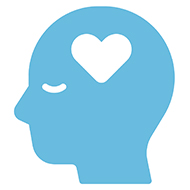Psychotherapy

Our dedicated team of psychotherapists brings exceptional expertise in the field of mental health. With their extensive skill set and a wide range of comprehensive tools, we are fully equipped to provide precise diagnoses and deliver effective treatments tailored to meet your unique needs.
Personalized Approach to Mental Health Care:
At Mind Institute, we understand that mental illness is unique to each individual, and we prioritize a personalized approach that goes beyond generic one-size-fits-all solutions. Our treatment programs are meticulously tailored to integrate your specific diagnoses, personal background, physical well-being, and individual preferences.
Adult Psychotherapy Pathways:
- Cognitive Behavioral Therapy (CBT): CBT assists individuals in recognizing and modifying unhealthy or ineffective thought and behavior patterns, replacing them with more accurate thoughts and functional behaviors. This approach fosters a better focus on current issues and their solutions, often involving practical skill application in real-life situations. CBT is effective for various conditions, including depression, anxiety, trauma-related disorders, and eating disorders. For instance, it can empower someone experiencing depression to identify and alter detrimental thought patterns or behaviors contributing to their condition.
- Interpersonal Therapy (IPT): IPT is a short-term treatment method designed to uncover underlying interpersonal challenges, such as unresolved grief, shifts in social or occupational roles, conflicts with significant others, and relational difficulties. It equips individuals with healthy ways to express emotions, enhance communication, and improve interpersonal interactions. IPT is commonly employed to address depression.
- Psychodynamic Therapy: This therapy is rooted in the concept that behavior and mental well-being trace back to childhood and past experiences. It involves surfacing unconscious emotions and working collaboratively with the therapist to enhance self-awareness and modify deeply ingrained patterns, enabling individuals to take greater control of their lives.
- Supportive Therapy: This therapy employs guidance and encouragement to nurture clients' internal resources. It cultivates self-esteem, alleviates anxiety, reinforces coping mechanisms, and enhances social and community functioning. This approach assists clients in addressing mental health-related concerns that impact various facets of their lives.
If you're struggling with any of the following symptoms, we encourage you to reach out to us:
- Difficulty Concentrating: Experiencing challenges in maintaining focus and attention
- Emotional Instability: Frequent and unpredictable mood swings that may include intense anger and irritability
- Substance Misuse: Engaging in excessive or problematic use of substances as a means of coping or escape
- Suicidal Thoughts: Having persistent thoughts about self-harm or suicide, which require immediate attention and support
- Distorted Perception: Experiencing delusions (fixed false beliefs) or hallucinations (sensory perceptions without external stimuli), leading to a disconnection from reality
- Lack of Insight: Difficulty recognizing or acknowledging one's own mental health condition or the need for treatment, known as anosognosia
- Social Disconnect: Struggling to connect or relate to others, experiencing feelings of isolation or withdrawal
- Impaired Functioning: Inability to carry out daily activities and responsibilities, such as household chores or work tasks
- Lack of Motivation: Decreased drive or interest in participating in previously enjoyed activities or pursuing personal goals
- Unexplained Physical Symptoms: Manifestation of unexplained physical discomforts, such as persistent stomachaches or headaches, which may have underlying psychological origins
Areas of Treatment at Mind Institute:
- Major Depressive Disorder
- Generalized Anxiety Disorder (GAD)
- Bipolar Disorder
- Dementia
- Attention-Deficit/Hyperactivity Disorder (ADHD)
- Schizophrenia
- Obsessive-Compulsive Disorder (OCD)
- Autism Spectrum Disorder
- Post-Traumatic Stress Disorder (PTSD)
- Borderline Personality Disorder (BPD)
- Panic Disorder.
- Social Anxiety Disorder (Social Phobia)
- Substance Use Disorders
- Eating Disorders
- Postpartum Depression and Anxiety
- Trauma and Stress-Related Disorders
- Insomnia and Sleep Disorders
- Chronic Pain Management
- Phobias
At Mind Institute, your mental health and well-being are our top priorities. We are here to provide you with the support and care you need on your journey towards improved mental health.
